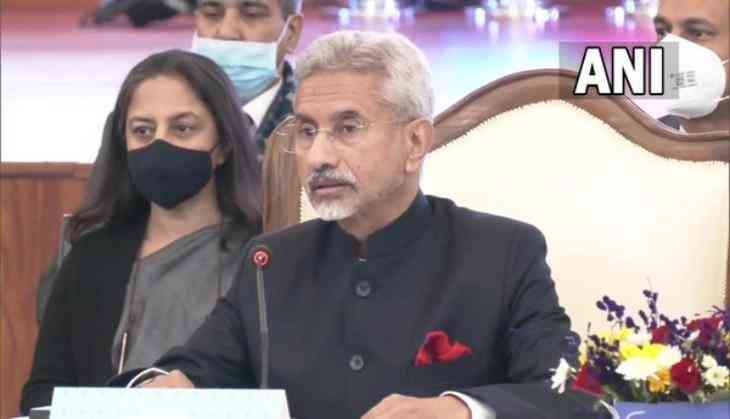
Assuring India's readiness to take diplomatic relations to the next level, External Affairs Minister (EAM) S Jaishankar on Sunday said that India-Central Asia relations must focus on 4Cs -- Commerce, Capacity enhancement, Connectivity and Contacts.
In opening remarks at the 3rd meeting of the India-Central Asia Dialogue, the minister noted that this meeting comes amid a rapidly changing global, economic and political situation.
"The Covid-19 situation resulted in an enormous setback to global health and the global economy. It has changed the way we imagine society and workplaces, supply changes and governance. It also highlighted the inadequacy of the existing multilateral structure to meet new and emerging threats," he said.
Noting a good history of cooperation among the participating countries, Jaishankar said, "Our ties must now focus on 4Cs -- Commerce, Capacity enhancement, Connectivity and Contacts."
Despite the impact of the COVID-19 pandemic, our countries have sustained the momentum of our relations, he added."
"Covid has impacted all countries. India supplied vaccines to over 90 countries; the welfare of Indian students during the pandemic sustained the momentum of our relationships. Together we can do this better," he said.
Jaishankar is hosting the third meeting of the India-Central Asia Dialogue that is aimed to further strengthen ties between the member countries, with a particular focus on trade, connectivity and development cooperation.
This event, which will last till December 20, has will see participation from Foreign Ministers of Turkmenistan, Kazakhstan, Tajikistan, Kyrgyzstan and Uzbekistan. It assumes importance due to the ongoing humanitarian situation in Afghanistan.
Since the Taliban's takeover of the country, Jaishankar has met several of the participating ministers for talks focusing on the issues concerning the troubled country.
Jaishankar on Saturday hosted the Foreign Ministers of Central Asian countries to a welcome dinner.
(ANI)
Also Read: Afghanistan: Government employees take to streets in Kabul over unpaid salaries


